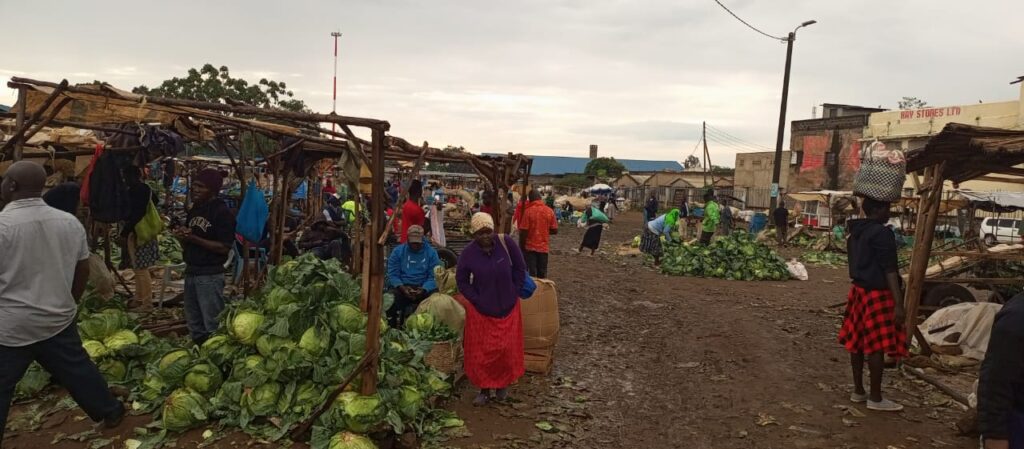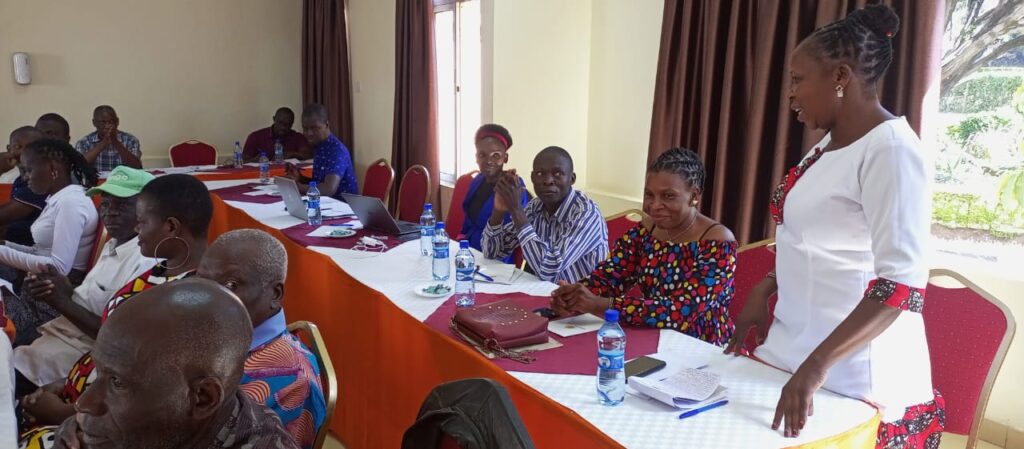It was one cool evening, five years ago.
Carolyn Adhiambo, a food vendor, was having a lazy talk with a fellow trader.
She had not operated her business for three days after running out of stock.
I had exhausted all the possible loan applications, and the local shopkeepers who could advance me some stock
Carolyn Adhiambo
“So I asked the colleague to help me secure some funds so that I could restock,” said Adhiambo.
“I had exhausted all the possible loan applications, and the local shopkeepers who could advance me some stock,” she added.
It was then that the colleague referred her to a shylock.
“She told me there are some Maasais who give people money, and that it would take me minutes,” she said.
The slum shylocks
Later in the evening, Adhiambo was introduced to the shylock.
“Within no minute, the shylock handed me Sh3, 000, and I got back to my kiosk to prepare to resume work the following day,” she said.
“I was required to pay Sh300 per day for 15 days,” she added.
And from the following day, the shylock would knock, pick his Sh300.
At the end of the 15 days, Adhiambo would have repaid Sh4, 500.
By the time you are done paying the money, your business is down again, and you have to ask for more so as to keep you going
Jemimah Atieno
Adhiambo who plies her trade at Nyalenda Kilo is one of the many small scale traders in Kisumu slums who are bearing the huge burden of such loans.
And for the fifth year now, Adhiambo is a slave of the loans which have become slaves of such unscrupulous shylocks.
“By the time you are done paying the money, your business is down again, and you have to ask for more so as to keep you going,” she said.
Last year, she defaulted for four days when her baby was admitted in hospital.
“I had to close the business so as to attend to my baby in hospital. And when I returned, it was hell as the shylock was not ready for any explanation, and after an evening of endless threats, I had to borrow money from a friend to repay the loan,” she said.
A few metres at Pikadiri, in Nyalenda, is Jemima Atieno.
Atieno sells githeri (boiled corn and beans) along the Ring Road.
She has been doing this business for the past ten years, and this is what pays bills for her family of seven.

Shylocks’ evening visits
When Lake Region Bulletin caught up with her, Atieno was preparing to go to the market.
“The shylock is about to show up for his daily collection. He comes between 4pm and 6pm daily,” she says.
Atieno is currently repaying a loan of Sh8, 000 she had borrowed a few days before.
She will have to pay Sh12, 000 at the end of the 15-day payment period.
Two months ago, she lost her six-kilo gas cylinder to the shylocks after she defaulted another loan.
Just like Adhiambo, Atieno says she has been hooked to the shylock for the past three years.
“We have no option, so we just have to take this money,” she says.
“And there is no explanation for default. They come prepared for their money, and if it is not there, they take anything from your house,” she says.
At Katuoro Market, Elizabeth Auma sits pensively in a sunny Thursday afternoon.
She sells vegetables, a trade she has engaged in for the past seven years when she moved to this area.
She is also a victim of the expensive loans, and is currently serving a Sh5, 000 loan she took a few days ago.
“The loans are appetizing, because the shylocks do not need any collateral, nor guarantors. They just want to know your house, and place of work,” she says.
She says despite her business collapsing numerous times due to the expensive loans, she is hooked to it, as she has no alternative.
“It looks like we are doing business for them. But what options do we have?” she poses.
Community dialogue
Jescah Ochieng is a volunteer community educator in the wider Nyalenda Slums.
She says she has had to intervene to help women at the verge of losing their property due to loan defaults.
“Recently, a woman disappeared from her home for two weeks to keep away from the shylocks. I got a report that her children were in need of help, and I went in to help,” she says.

Ms Ochieng notes that due to lack of records, the unscrupulous shylocks have rained terror on small scale businesses in the slums, and are breaking families.
“Those people do not call you, neither do they give you their phone numbers. They do not want the money sent through mobile money, and they only deal with cash,” she said.
“This is already a crisis, and must be addressed before it shutters this community,” she adds.
Ms Ochieng says she has been using community forums highlight the issue, however, no action has been taken by the authorities.
She says some women have reported cases of sexual harassment by the shylocks who demand for sex should the women default.
Some of the women who spoke to Lake Region Bulletin also admitted to having heard of such conversations with some defaulters.
“In every forum I attend, I raise this matter, but nobody seems to be keen to take it up. We must not wait till it gets out of hand,” she said.
Kisumu County Government not aware
Kisumu County Director of Trade Roselyne Omondi said her office is not aware of this situation, but pledged to take it up.
She said the directorate has been running a fund which helps small scale traders.
“For example in this financial year, we have budgeted to disburse Sh50 million,” she said.
Thank you for bringing this to my attention, and I am going to do my ground work to meet these people and understand the best way the county government can help
Roselyne Omondi, County Director of Trade
But this may not be a solution to Adhiambo and cohorts, as beneficiaries of this fund must meet certain critaria.
They must have Kenya Revenue Authority registration, or registered businesses.
“Thank you for bringing this to my attention, and I am going to do my ground work to meet these people and understand the best way the county government can help,” Ms Omondi said.
Early this year, Ms Ochieng raised the matter during a Crisis Communication Chapter (CCC) forum in Kisumu, saying the matter was slowly getting out of hand.
CCC is a project initiated by Kenya Correspondents Association (KCA) through the support of DW Akademie to promote dialogue within communities.
Program Coordinator Oloo Janak who is also the KCA Chair urged the community to use available dialogue forums to help solve the situation.
